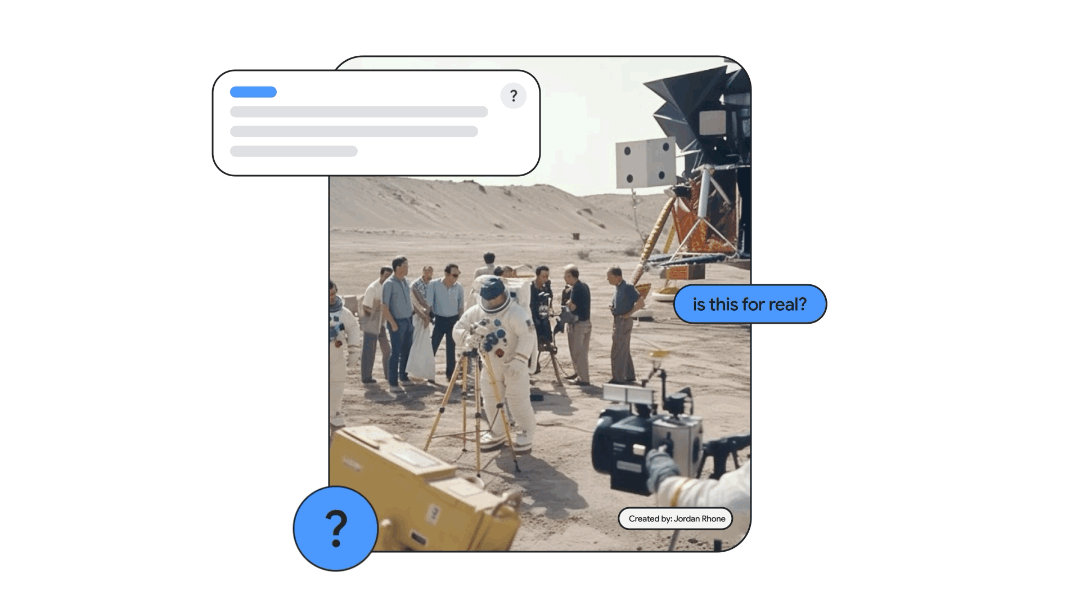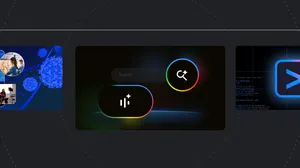Get helpful context with About this image
Have you ever found yourself in this position? You see an image on a website, in your feed, or in a message from a friend — and you think, "this doesn't feel quite right." Is the image being shown in the right context? Has it been manipulated or faked? Where did it come from? When you’re trying to figure out if a piece of information or an image is reliable, having the full story is key.
Sixty-two percent of people believe they come across misinformation daily or weekly, according to a 2022 Poynter study. That’s why we continue to build easy-to-use tools and features on Google Search to help you spot misinformation online, quickly evaluate content, and better understand the context of what you’re seeing. But we also know that it’s equally important to evaluate visual content that you come across.
That’s why we’re expanding our ongoing work in information literacy to include more visual literacy and help people quickly and easily assess the context and credibility of images. In the coming months, we’re launching a new tool called About this image. Available first in the U.S. in English, you can see important context like:
- When the image and similar images were first indexed by Google,
- Where it may have first appeared,
- Where else it’s been seen online (like on news, social, or fact checking sites)
This illustrative example shows how people can get more context using About this image.

With this background information on an image, you can get a better understanding of whether an image is reliable — or if you need to take a second look. For example, with About this image, you’d be able to see that news articles pointed out that this image depicting a staged moon landing was AI-generated.
You’ll be able to find this tool by clicking on the three dots on an image in Google Images results, searching with an image or screenshot in Google Lens, or by swiping up in the Google App when you’re on a page and come across an image you want to learn more about. Later this year, you'll also be able to use it by right-clicking or long-pressing on an image in Chrome on desktop and mobile.
Today we're also announcing that as we begin to roll out generative image capabilities, we will ensure that every one of our AI-generated images has a markup in the original file to give you context if you come across it outside of our platforms. Creators and publishers will be able to add similar markups, so you’ll be able to see a label in images in Google Search, marking them as AI-generated. You can expect to see these from several publishers including Midjourney, Shutterstock, and others in the coming months.
An illustrated example of how markups of images generated with AI will look.

An example of how markups on images self-labeled as AI generated will look for the publisher Midjourney.

Google Search is built from the ground up to deliver reliable, helpful and high-quality information. And these two new features are just the latest ways we’re helping you make sense of what you find online and keep up with an ever-changing web. For example, with our About this result tool, you can quickly see more information about a source or topic, so you can assess whether you can trust what you’re reading. In March, we announced five new ways that you can use to verify information on Search. And over the past few years we’ve released numerous features and tools as part of ongoing work to empower you with the information you need to determine what you can trust online.
We’ll continue to make updates so you can use Google Search to better understand what you’re seeing online quickly and easily.







